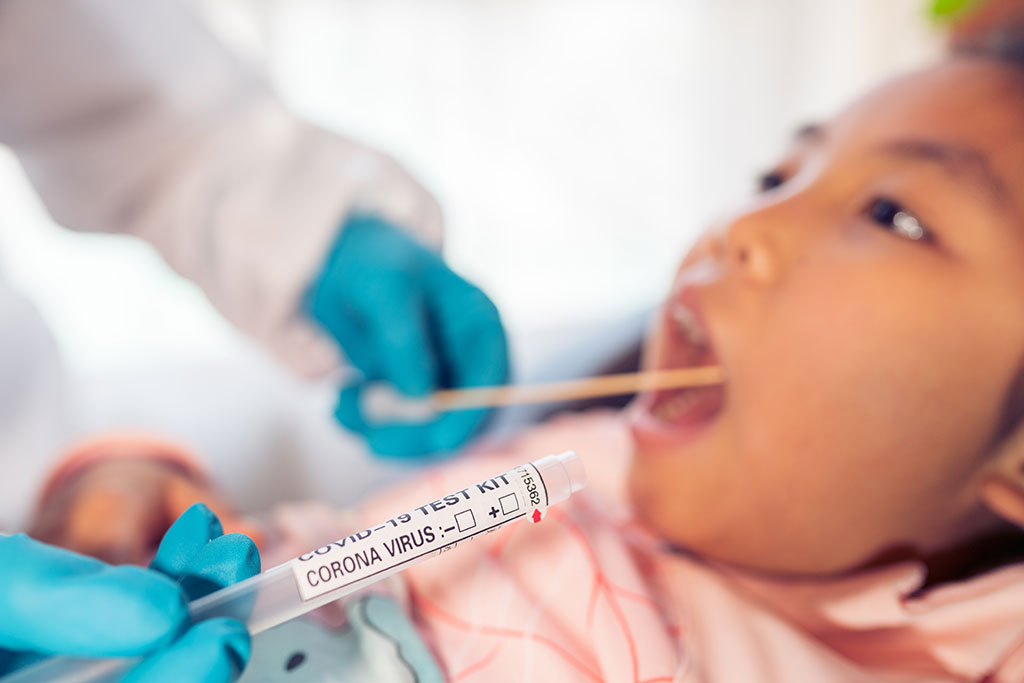CARING for Children with COVID efforts aim to better understand SARS-CoV-2 infection, which leads to COVID, in children. The collaboration also allows the supporting institutes to coordinate research related to COVID in children and to capitalize on well-established infrastructure.
CARING studies will answer the following research questions:
- Why are some children more likely than others to get infected with SARS-CoV-2?
- Why do different children show different symptoms of COVID?
- Why do some children who become infected with SARS-CoV-2 have more severe illness, like multisystem inflammatory syndrome in children (MIS-C)?
- What are the long-term outcomes for children who have become infected with SARS-CoV-2?
Prospective Longitudinal CARING Cohort Studies
The CARING for Children with COVID program aligns multiple cohort studies to improve understanding of the effects of SARS-CoV-2 infection and MIS-C on children. Using common clinical elements among the protocols makes data integration possible and helps accelerate analysis. Additional data collection will improve understanding of the immunology and multiple organ systems involved in responding to SARS-CoV-2 infection.
Current CARING prospective longitudinal cohort studies include the following:
Long-TerM OUtcomes after the Multisystem Inflammatory Syndrome In Children (MUSIC)
A program of the NHLBI, this study leverages the Pediatric Heart Network (PHN). It focuses on cardiovascular complications of MIS-C, but also collects data on all aspects of childhood and adolescent health in affected participants.
Enrollment in MUSIC is closed, but more information about the criteria used can be found here:
https://covidmusicstudy.com/how-to-join/
Pharmacokinetics, Pharmacodynamics, and Safety Profile of Understudied Drugs Administered to Children per Standard of Care (POP02)
A program of NICHD, this study leverages the Pediatric Trials Network. It focuses on understanding the treatment of children diagnosed with COVID-19 or MIS-C with medicines that have shown promise in adults with COVID-19.
Learn more about participant eligibility here:
https://clinicaltrials.gov/ct2/show/NCT04278404?term=pop&age=0&draw=2
Pediatric Research Immune Network on SARS-CoV-2 and MIS-C (PRISM)
Sponsored and funded by NIAID, this study aims to evaluate the short- and long-term health outcomes of SARS-CoV-2 infection in children, including MIS-C, and to characterize the immunologic pathways associated with different disease presentations and outcomes.
Enrollment in PRISM is closed, but more information about the criteria used can be found here:
https://clinicaltrials.gov/ct2/show/NCT04588363?term=prism&cond=covid&draw=2&rank=1
Learn more about the networks conducting CARING cohort studies on the About page of this website.
Data sharing among CARING prospective longitudinal cohort studies
CARING for Children with COVID is also supporting the collection of a core set of clinical data across prospective longitudinal CARING cohort studies to ensure robust and interoperable cloud-based data sharing on three platforms.
- NHLBI’s BioData Catalyst cloud-based ecosystem
- Gabriella Miller Kids First Data Resource Portal
- NIAID’s ImmPort Shared Data
Datasets on these platforms will be made widely available to allow more researchers to conduct additional analyses and make more discoveries. Some early data are expected to become available in the first half of 2021.
NIH is investing in Fast Healthcare Interoperability Resources (FHIR) to advance the sharing and use of CARING for Children with COVID data. These resources will facilitate data analysis between research cohorts, enabling researchers to construct a bigger “virtual” cohort or to identify smaller cohorts or subpopulations to answer specific research questions.
CARING Cohort Translational Research
Supported through NIH’s Rapid Acceleration of Diagnostics – radical (RADxSM-rad) initiative, and led by NICHD, PreVAIL kIds is developing cutting-edge approaches for understanding the underlying factors that influence the spectrum of conditions that may occur in children infected with SARS-CoV-2. Research includes studies of genetic, immune, viral, environmental, and other factors that influence the severity of childhood COVID-19 in diverse cohorts of children and leverages artificial intelligence and machine learning to understand the disease patterns and rapidly hone in on risk factors for developing MIS-C. Once biomarkers or combinations of these called biosignatures, reliably predictive of risk of severe illness are identified, the goal is to test and validate these approaches in larger cohorts of children from diverse backgrounds and geographic areas so they can be approved for use by healthcare providers. This will help clinicians better tailor and guide treatments most appropriate for each child’s constellation of findings when they are seen. Awards for PreVAIL kIds were issued in December 2020.



